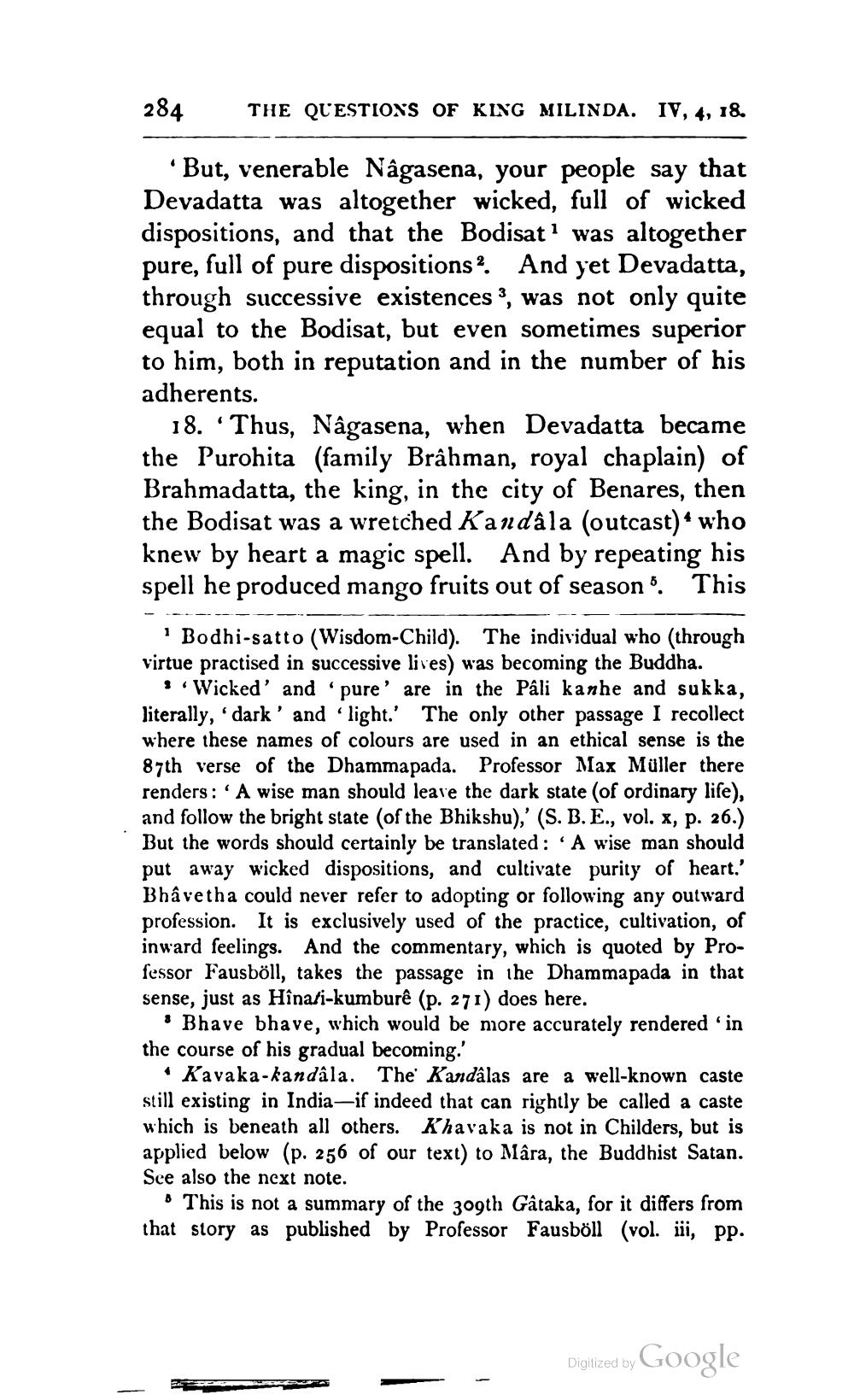________________
284
THE QUESTIONS OF KING MILINDA. IV, 4, 18.
‘But, venerable Nâgasena, your people say that Devadatta was altogether wicked, full of wicked dispositions, and that the Bodisat was altogether pure, full of pure dispositions. And yet Devadatta, through successive existences 3, was not only quite equal to the Bodisat, but even sometimes superior to him, both in reputation and in the number of his adherents.
18. “Thus, Nâgasena, when Devadatta became the Purohita (family Brâhman, royal chaplain) of Brahmadatta, the king, in the city of Benares, then the Bodisat was a wretched Kandala (outcast) who knew by heart a magic spell. And by repeating his spell he produced mango fruits out of season. This
'Bodhi-satto (Wisdom-Child). The individual who (through virtue practised in successive lives) was becoming the Buddha.
Wicked' and 'pure' are in the Pali kanhe and sukka, literally, 'dark' and light.' The only other passage I recollect where these names of colours are used in an ethical sense is the 87th verse of the Dhammapada. Professor Max Müller there renders: 'A wise man should leave the dark state (of ordinary life), and follow the bright state (of the Bhikshu),' (S. B. E., vol. x, p. 26.) But the words should certainly be translated : 'A wise man should put away wicked dispositions, and cultivate purity of heart.' Bhâvetha could never refer to adopting or following any outward profession. It is exclusively used of the practice, cultivation, of inward feelings. And the commentary, which is quoted by Professor Fausböll, takes the passage in the Dhammapada in that sense, just as Hinati-kumburê (p. 271) does here.
• Bhave bhave, which would be more accurately rendered in the course of his gradual becoming.'
Kavaka-kandala. The Kandalas are a well-known caste still existing in India-if indeed that can rightly be called a caste which is beneath all others. K'havaka is not in Childers, but is applied below (p. 256 of our text) to Mâra, the Buddhist Satan. See also the next note.
* This is not a summary of the 309th Gâtaka, for it differs from that story as published by Professor Fausböll (vol. Üï, pp.
Diglized by Google




